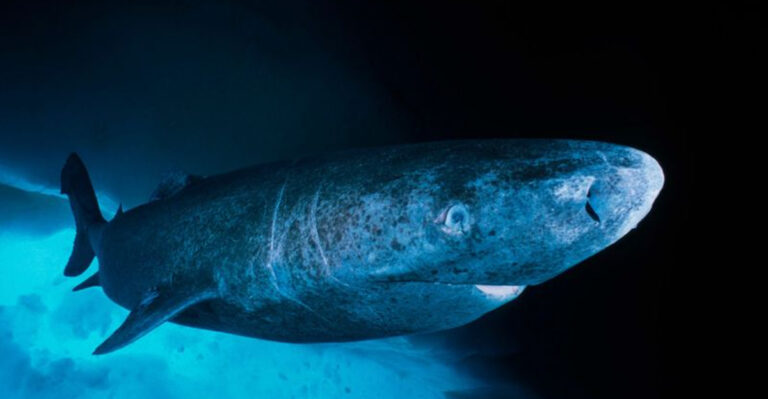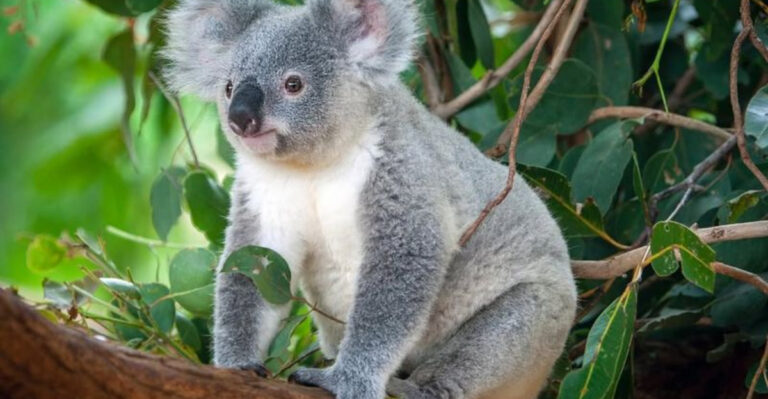16 Donkey Myths And The Surprising Truths Behind Them
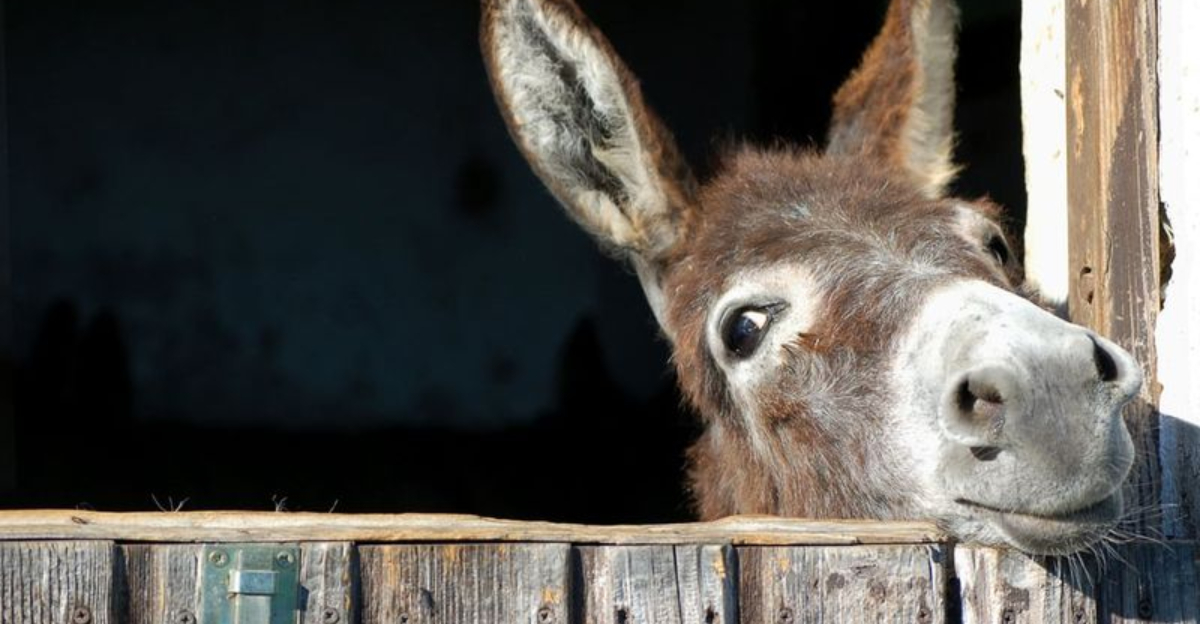
When you think of an animal that’s the epitome of stubbornness, a donkey probably trots into your mind. But is that really fair?
Let’s unravel some myths and look at these misunderstood creatures with fresh eyes. They are far more than just stubborn mules.
1. Donkeys Are Stubborn
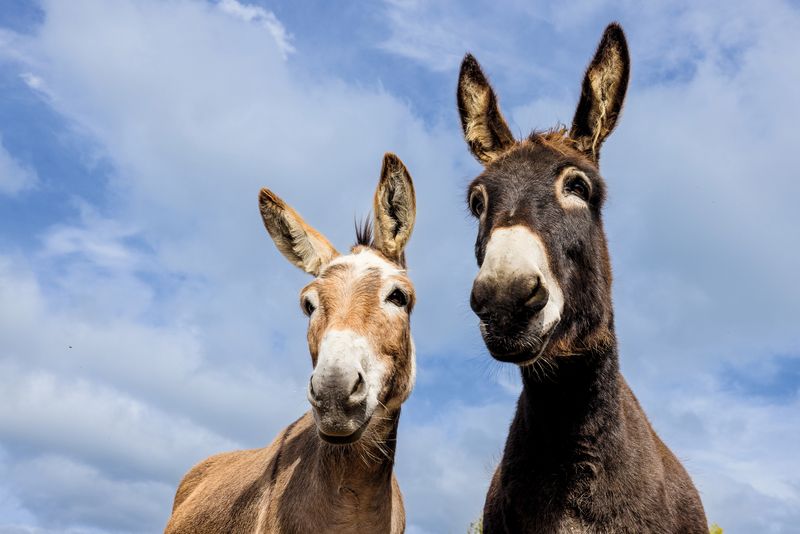
Ever heard someone say they’re as stubborn as a mule? Donkeys have a bad rap for being stubborn, but they’re just cautious and wise.
When a donkey stops in its tracks, it’s not being defiant. It’s evaluating a situation for safety. This trait has helped them survive in the wild for centuries.
Donkeys assess dangers and won’t move forward if they sense a threat. They are masters of self-preservation, not arbiters of obstinacy. It’s wisdom, not willfulness.
2. Donkeys Are Dumb
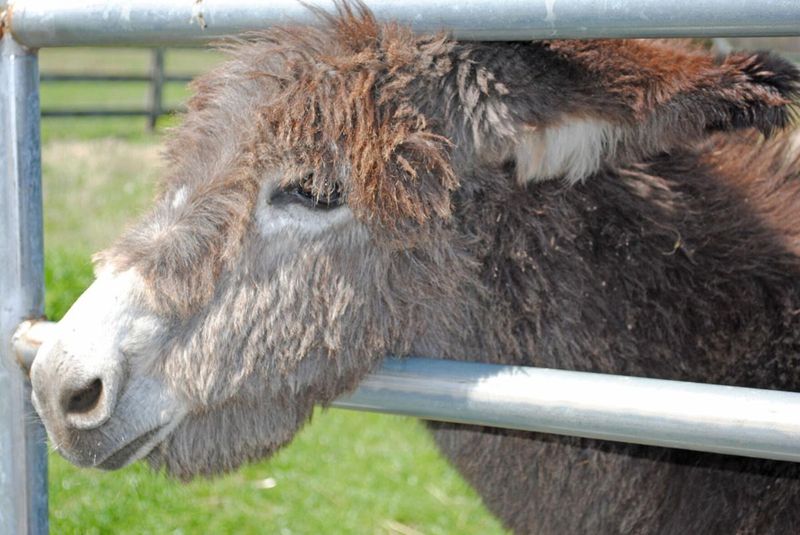
People often mistake a donkey’s calm demeanor for lack of intelligence. However, donkeys are incredibly smart. They possess excellent memories, capable of recalling areas and routes after a long time.
Their intelligence is essential for survival, especially in desert conditions. They can navigate difficult terrains much better than many other animals.
3. Donkeys Are Useless For Work

While donkeys may not be as fast as horses, they are incredibly strong and hardy.
These animals have been used for millennia to carry heavy loads and work on farms. In some regions, donkeys are the backbone of the local economy.
Their ability to carry heavy loads over long distances makes them invaluable, especially in terrains where vehicles can’t go. They are reliable, enduring partners in labor, dismissing the myth of uselessness.
4. Donkeys Don’t Get Along With Other Animals
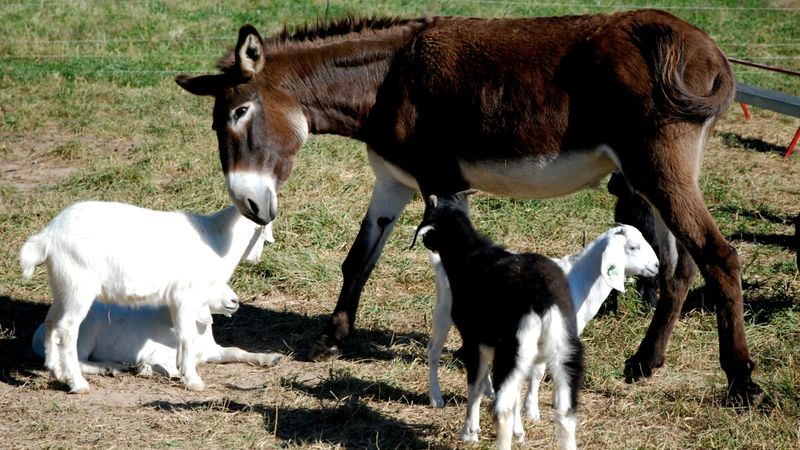
Contrary to popular belief, donkeys are sociable creatures. They often form strong bonds with other animals and can be quite protective. In some regions, donkeys are used to guard sheep and goats from predators.
They have a calming presence and can integrate well into a mixed-animal environment. Their reputation for being solitary and unwelcoming is unfounded. Donkeys can be the peacekeepers of pastures.
5. Donkeys Are Just Like Horses
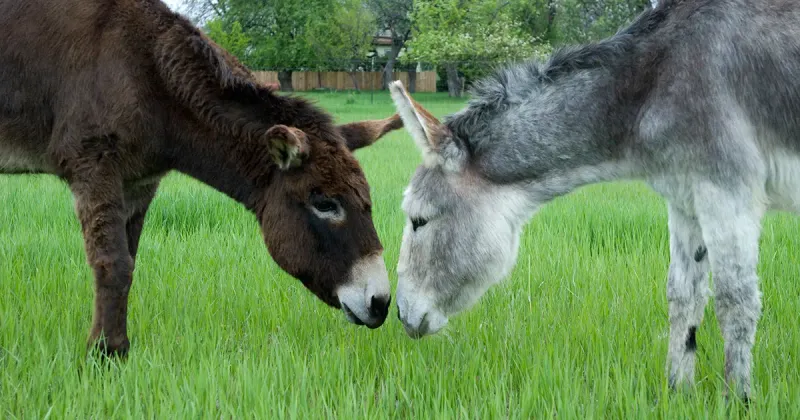
It’s easy to lump donkeys in with horses, but they are distinctly different. Donkeys have unique physical traits and personalities that set them apart.
Unlike horses, donkeys have a more relaxed disposition and require less maintenance.
Their hooves are tougher, allowing them to traverse rocky areas with ease. Donkeys aren’t just smaller horses; they are a different species with their own merits.
6. Donkeys Only Live In Deserts
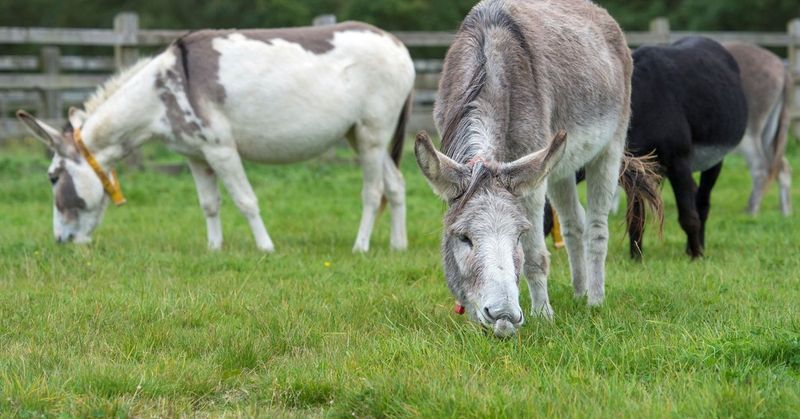
Donkeys are often associated with arid desert landscapes, but they can thrive in a variety of environments. They are adaptable animals found in numerous habitats around the world.
From lush meadows to rocky mountains, donkeys have proven they can adjust to various climates and terrains. They aren’t confined to deserts, showing their versatility and adaptability.
7. Donkeys Are Always Gray
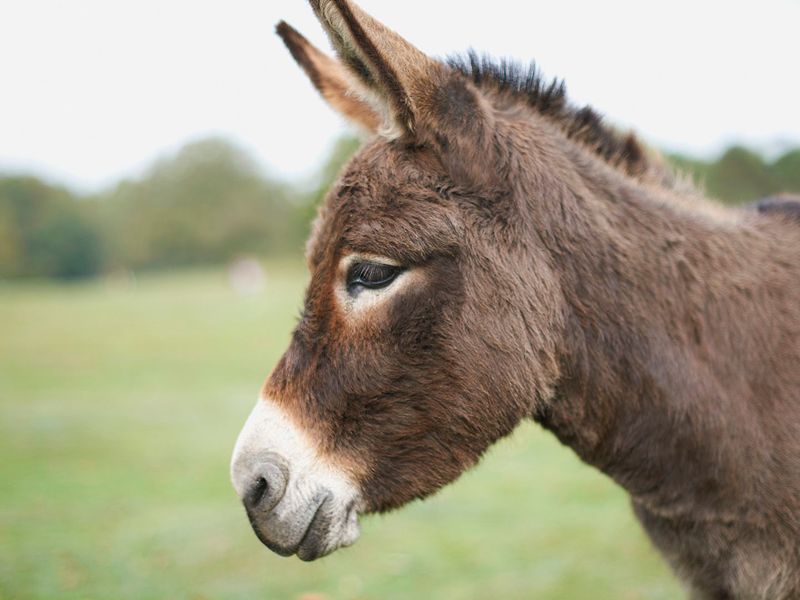
Think a donkey is always gray? Think again! Donkeys come in a spectrum of colors, including browns, blacks, whites, and even spotted patterns. Their coat colors can vary widely depending on their breed and genetics.
This diversity in appearance is often overlooked, leading to the misconception that they all look the same. Donkeys are as colorful as they are versatile.
8. Donkeys Can’t Be Trained
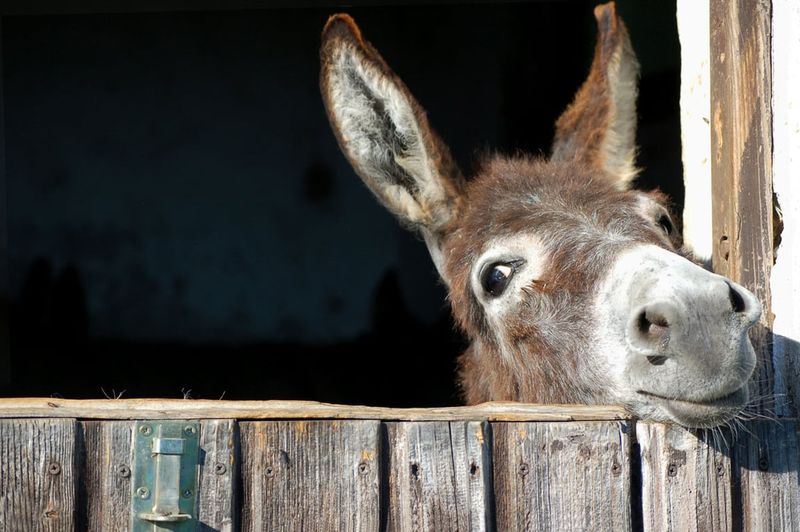
Donkeys can be trained just like other animals, though their independent nature requires patience and understanding. They respond well to positive reinforcement and can learn tasks and tricks.
Their intelligence aids in their training, making them responsive learners. Donkeys can be trained for riding, carrying loads, and even performing in shows.
They are more than capable pupils in the world of animal training.
9. Donkeys Are Bad-Tempered
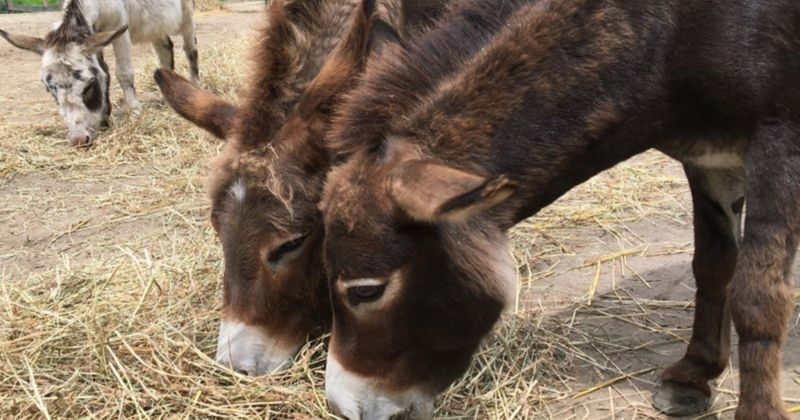
Donkeys have been unfairly labeled as grumpy, but most are gentle and affectionate. Their calm demeanor often makes them great companions for humans and other animals.
They can be incredibly loving and enjoy social interaction, dispelling the myth of their supposed bad temper. Spend some time with a donkey, and you’ll likely find a friend for life.
10. Donkeys Can’t Run Fast
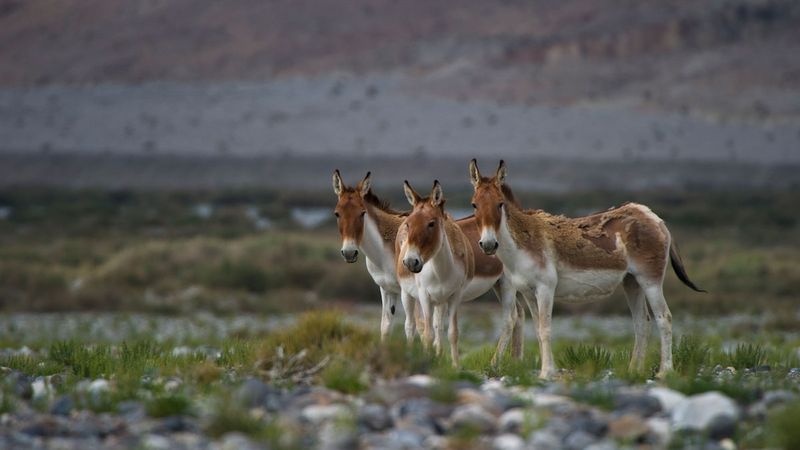
Donkeys might not be racehorses, but they are faster than you’d think. They can run at speeds up to 15 miles per hour. Their agility and endurance make them capable of outpacing predators when necessary.
While they may not win any races, donkeys can certainly hold their own in the speed department. They are not as slow and plodding as many believe.
11. Donkeys Don’t Need Companions
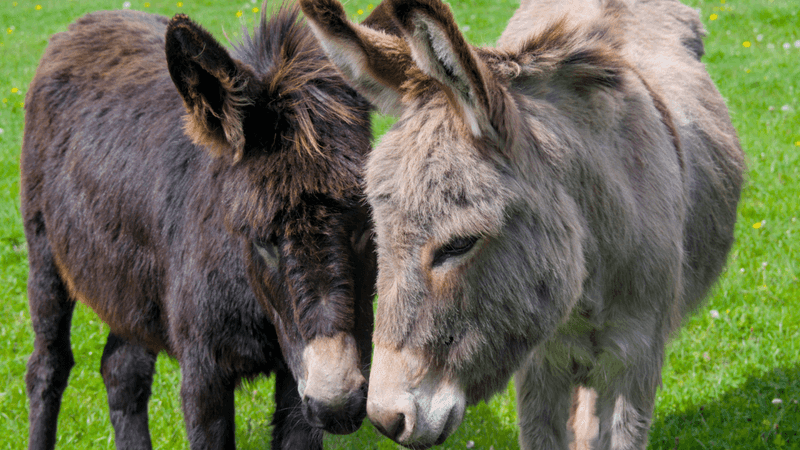
Donkeys are highly social animals and thrive on companionship. They form strong bonds with other donkeys and even other species. A lonely donkey can become stressed and anxious.
The myth that donkeys are solitary is misleading. They need friends just like we do, and a happy donkey is usually one with good company.
12. Donkeys Are Just Short Horses
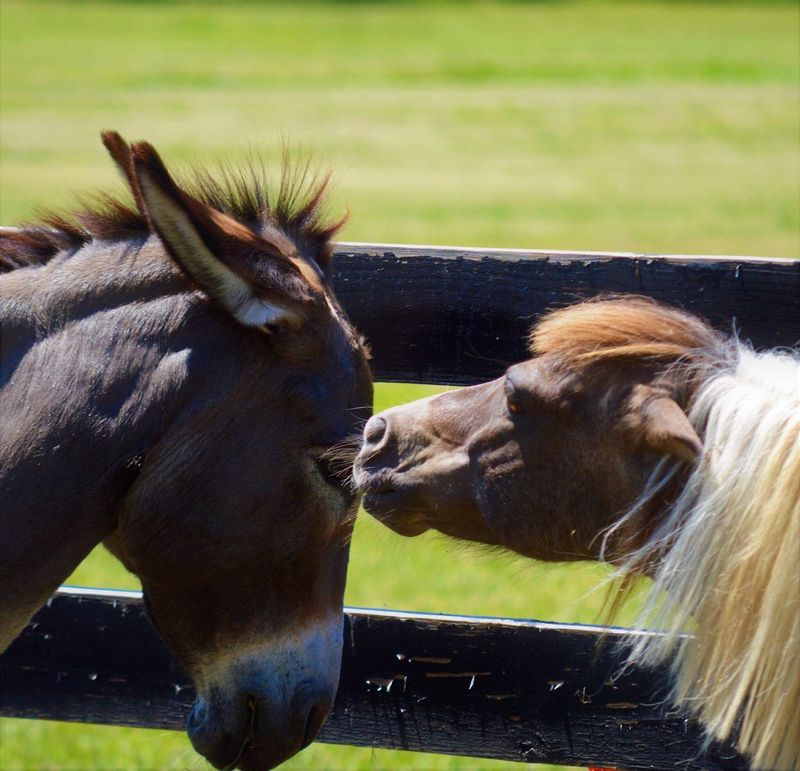
Donkeys and horses are from the same family but differ considerably.
Donkeys have longer ears, tougher hooves, and often a more robust build. Their demeanor is more laid-back compared to the often spirited nature of horses.
These differences in traits and physicality make donkeys uniquely suited to different environments and tasks. They are not just small horses, but unique animals in their own right.
13. Donkeys Always Bray Loudly
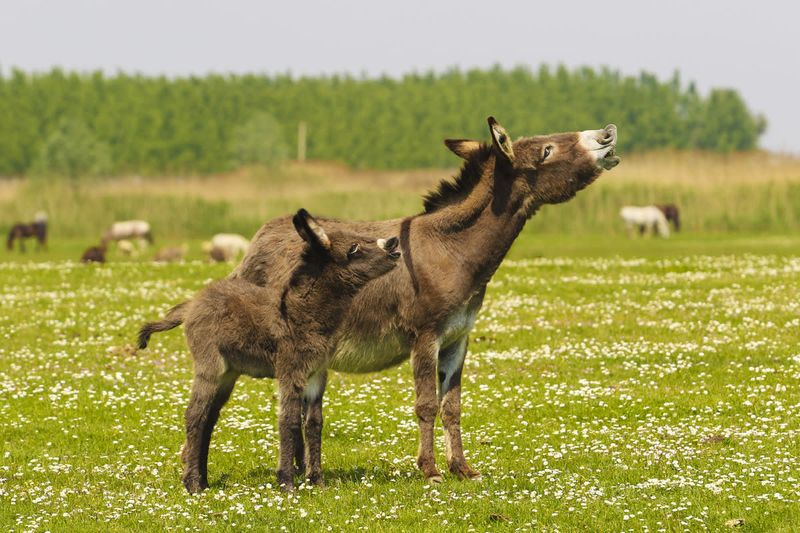
Braying is the donkey’s way of communicating, but it’s not always loud or intrusive. They use it to signal their presence, express emotions, or find companions.
Each donkey has a unique bray, much like a human’s voice, and it’s not always the loud noise people expect. Donkeys can be quite expressive, using their vocalizations to convey a variety of messages.
14. Donkeys Are All The Same Size
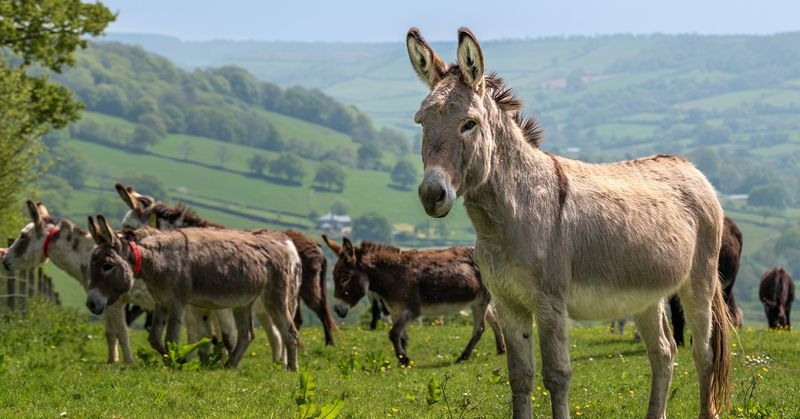
Donkeys come in a range of sizes, from the petite miniature donkeys to the larger standard ones. Each size serves different roles, from pets to work animals.
Their size variations are often overlooked, leading to the misconception that all donkeys are the same size. These differences add to their versatility in various settings.
15. Donkeys Don’t Care For Humans
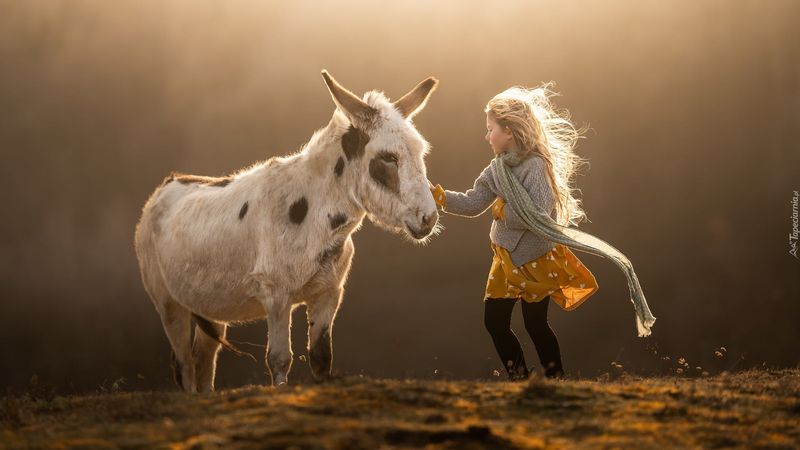
Donkeys can form strong bonds with humans and are known for their affectionate nature. They often seek out human companionship and enjoy social interactions.
Their gentle and loving demeanor is contrary to the myth that they are indifferent to people. Many donkey owners will attest to the strong emotional connections they share with their donkeys.
16. Donkeys Aren’t Strong
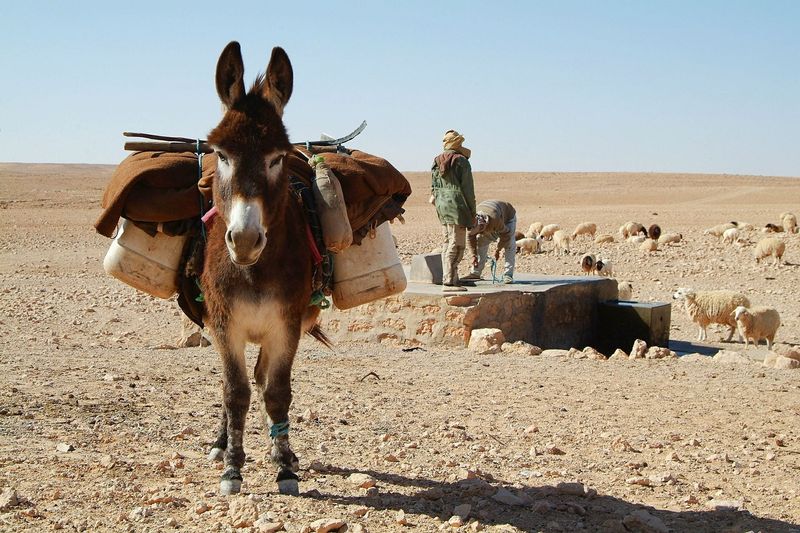
Despite their modest appearance, donkeys are incredibly strong animals. They are capable of carrying heavy loads over long distances, even in harsh conditions.
Their strength and endurance make them ideal for work in environments where machines may fail. Donkeys have served humanity as reliable and robust workers for centuries.



